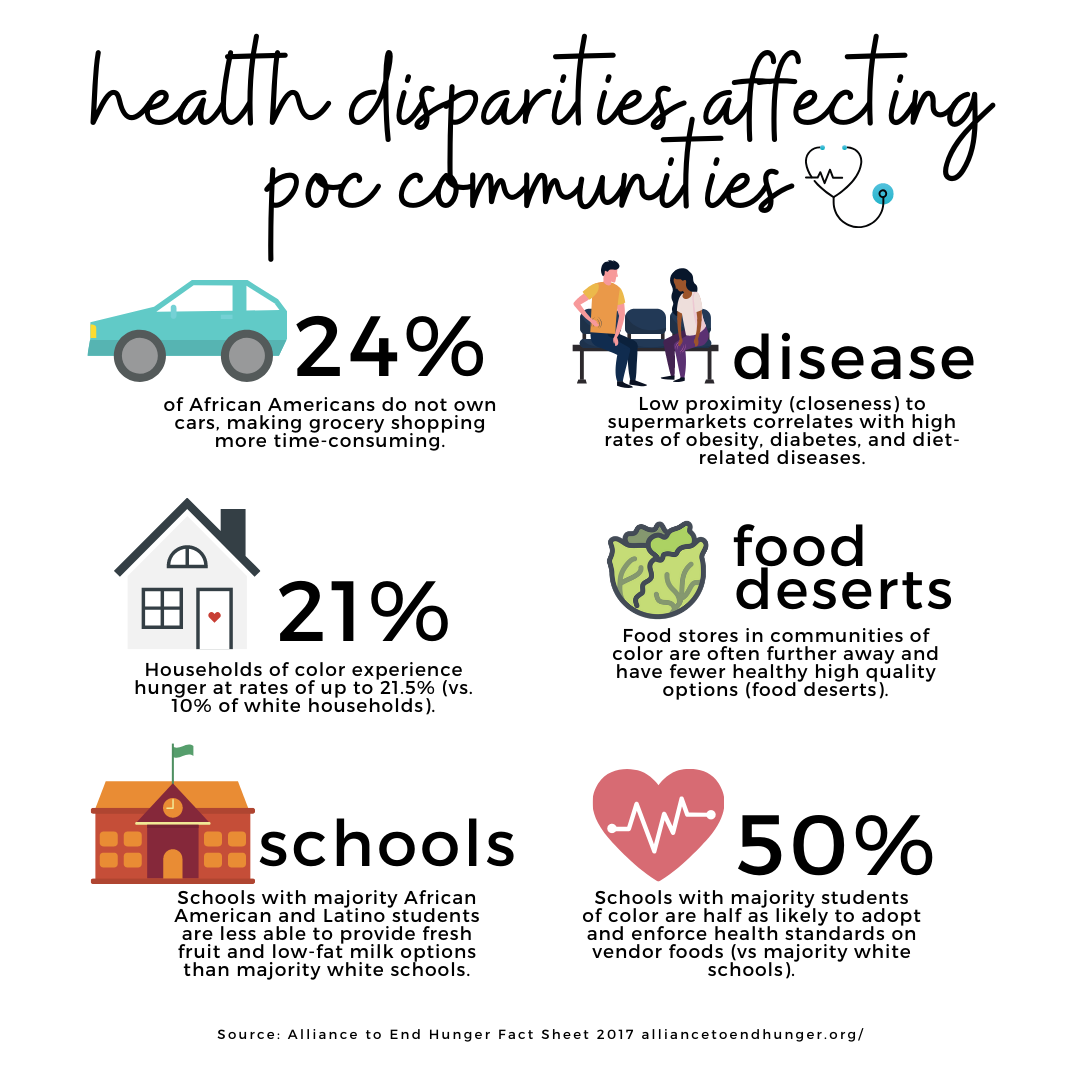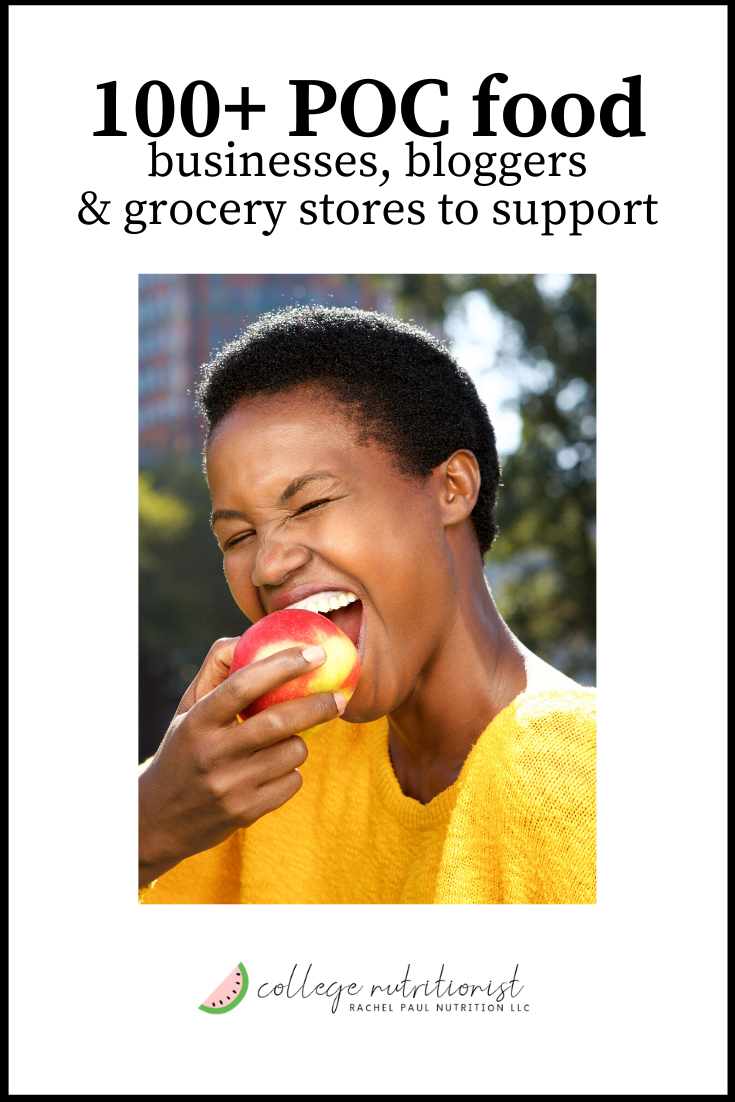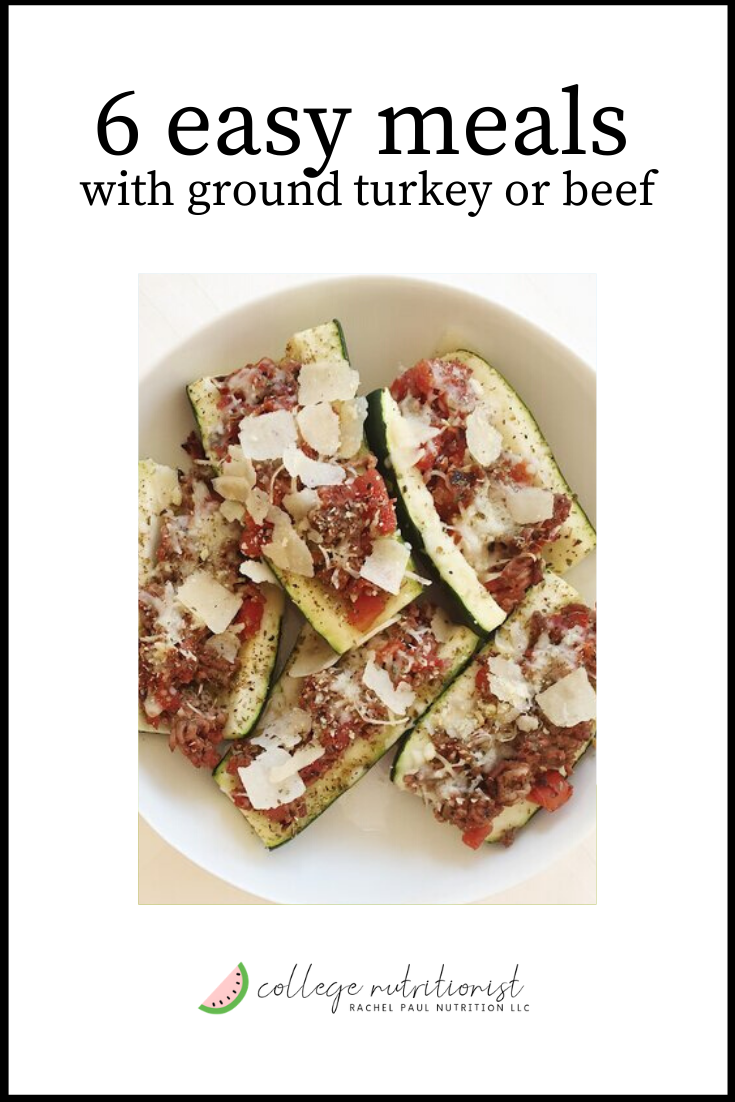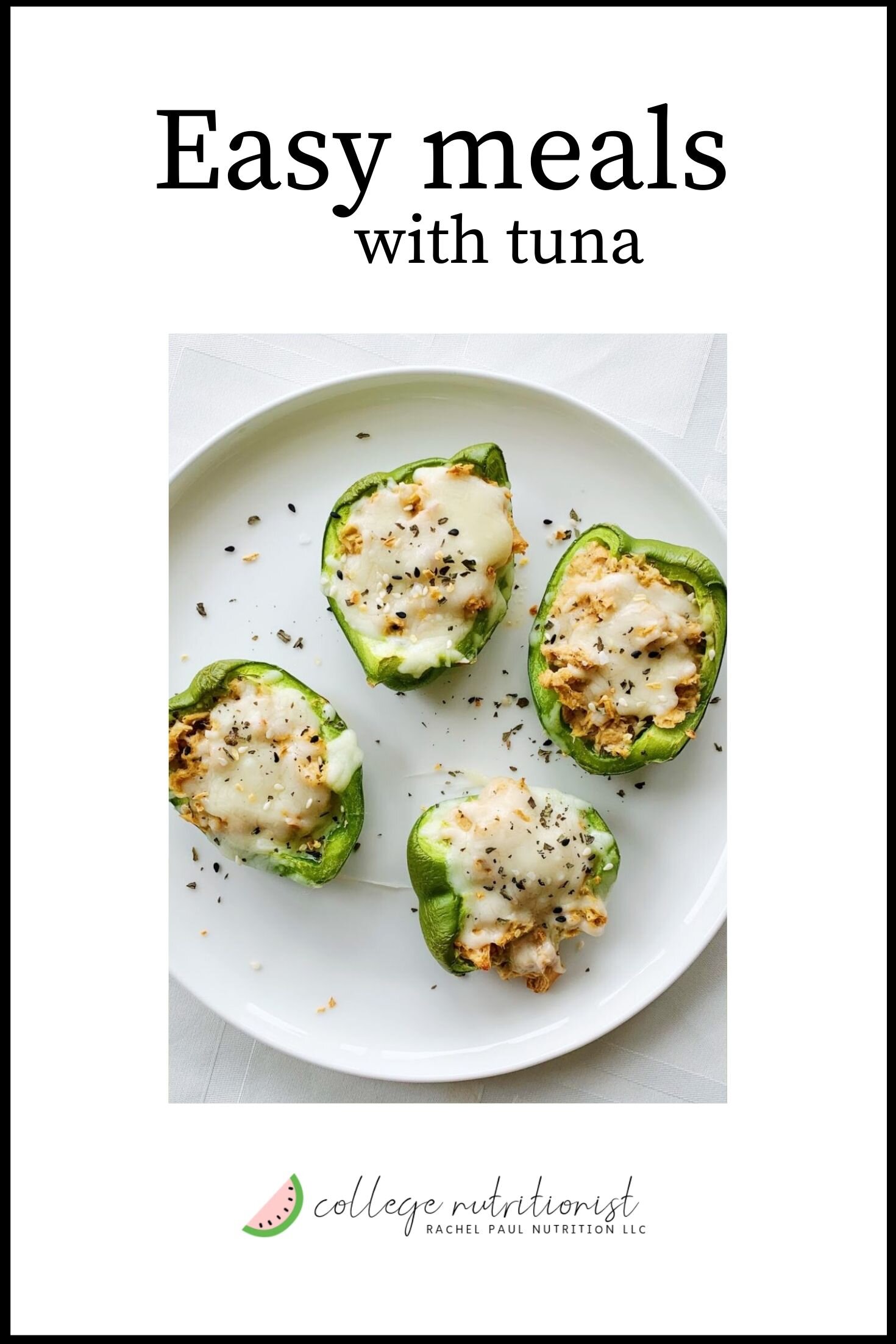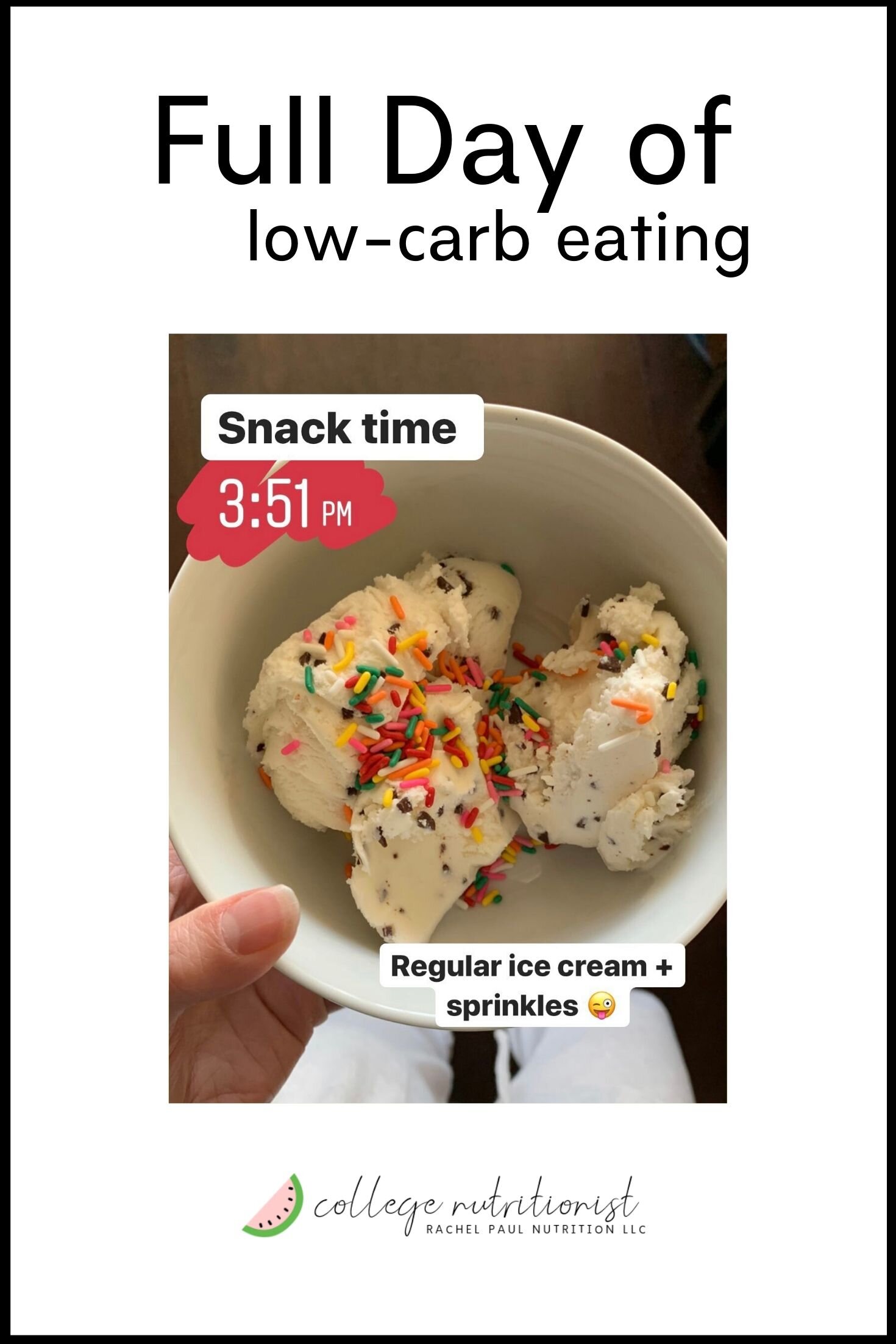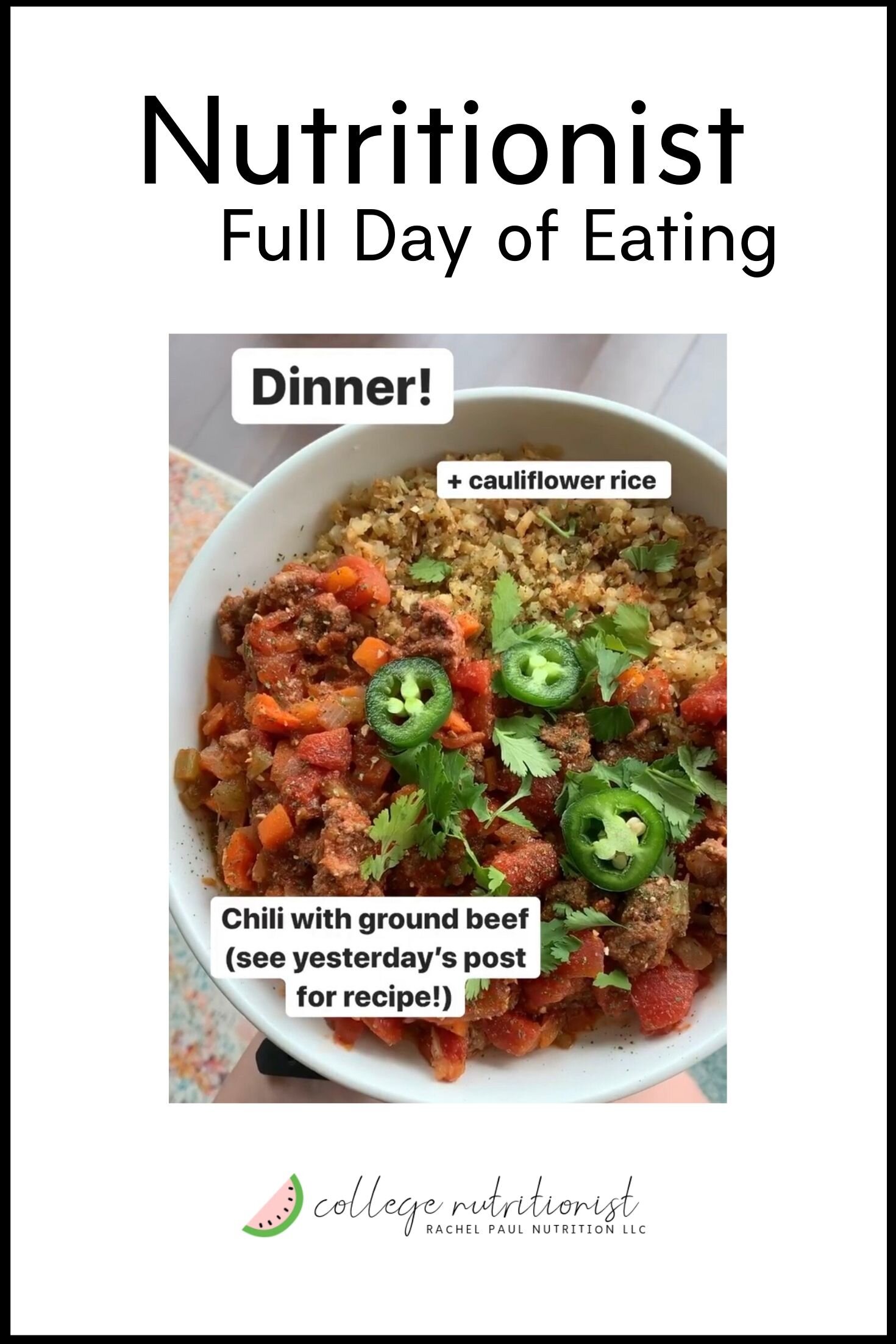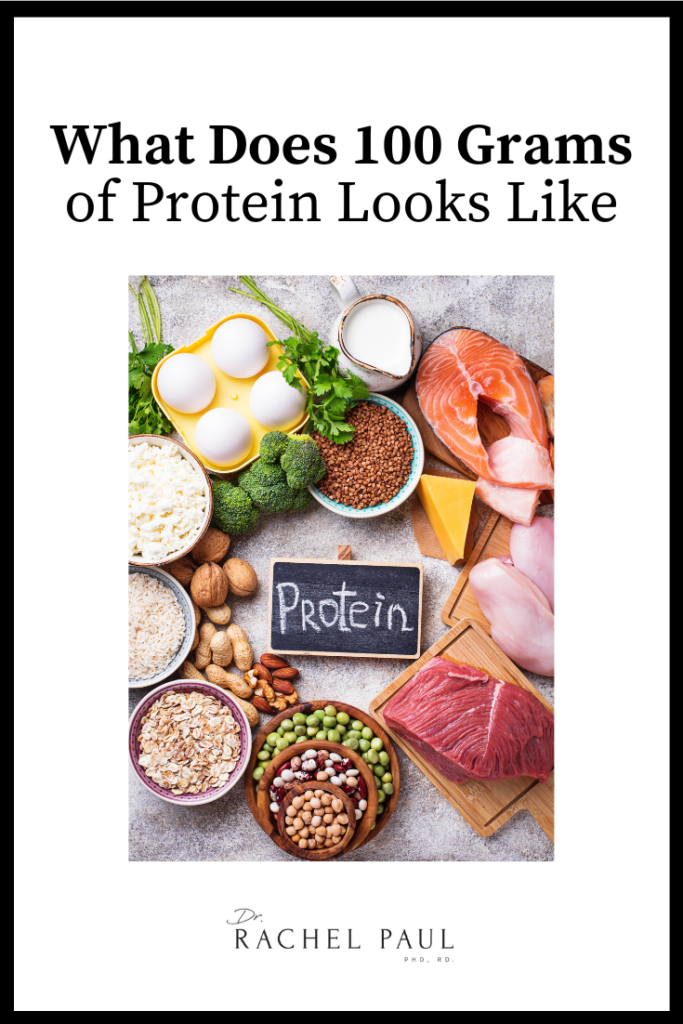We are all so saddened by the events that have taken place in our community and country recently. The last several months have been nothing short of challenging for most. It’s time to heal and come together as a community; stronger, wiser and more united. In this blog post, we’ll first look at disparities burdening POC communities, and then we’ll get into organizations and companies to support, so we can all do our part.
Food Insecurity & Disparities Affecting POC
Hunger, lack of nutritious food, and their consequences affect people of color (POC) more than white communities.
Let’s quickly define some important terms here: “food insecurity” and “food deserts”. Food security is a measure of the availability of food and individuals’ ability to access it. So food insecurity, is the lack of this ability. Food deserts, as defined by the USDA, are “areas with limited access to affordable nutritious food”.
Let’s look at some disparities among POC.
-
24% of African Americans, 17% of Latinos, and 13% of Asian Americans do not own cars, making grocery shopping more time-consuming. Low proximity to supermarkets correlates with high rates of obesity, diabetes, and diet-related diseases.
-
Households of color experience hunger at rates of up to 21.5% (vs. 10% of white households).
-
POC are disproportionately surrounded by food deserts. Food stores in communities of color are often further away and have fewer healthy high quality options.
-
Schools with majority African American and Latino students are less able to provide fresh fruit and low-fat milk options than majority white schools.
-
Schools with majority students of color are half as likely to adopt and enforce health standards on vendor foods (vs majority white schools).
Sources: Alliance to End Hunger, J Racial Ethn Health Disparities. 2016 Dec; Fam Community Health. 2018 Apr-Jun; Move for Hunger
Who is Taking Action to Help?
Learning, advocating, donating, and volunteering are excellent ways to get involved. Here are some organizations that are doing good work, and are great places to start.
1. Black Church Food Security Network
This national network supports gardening and farming within Black churches. They establish agricultural projects on church land, and connect farmers to markets. You can check out their map here.
2. Black Urban Growers Association
Black Urban Growers maintains a network and community support to foster Black leadership in farm advocacy.
3. Family Agriculture Resource Management Services (F.A.R.M.S.)
Attorney Jillian Hishaw founded F.A.R.M.S. to provide legal assistance to farmers with limited resources. She also links farmers with food banks to sell surplus produce.
4. National Black Food and Justice Alliance
This coalition of Black-led organizations focuses on community organizing and increasing visibility of Black narratives, visions, and achievements.
5. WANDA: Women Advancing Nutrition Dietetics and Agriculture
Given the rise of diet-related conditions like obesity and diabetes among Black women, WANDA aims to build a platform for “a new generation of food sheroes.” The WANDA movement set a goal to give a million women and girls access to education and health advocacy opportunities by 2030, to improve agriculture and nutrition worldwide.
6. The Okra Project
This collective provides free meals to Black Trans people experiencing food insecurity. They pay Black Trans chefs to go into the homes of Black Trans people to make them a healthy and home-cooked meal.
7. BCAGlobal
This organization works to advocate for Black people in the food and beverage industry, to advance their careers into mid and upper culinary management.
8. National Black Farmers’ Association
This non-profit focuses on land retention, access to public and private loans, and rural economic development for African-American farmers in the U.S. It aims to bring awareness to and end the gap in resources given to Black farmers.
In no way is this a complete list! Check my sources for more organizations. Sources: Food Tank, Delish
Supporting POC Food-Related Businesses
This is also an excellent way to educate yourself about different cultures. Here are some ideas. These lists are of course incomplete! Please email me if there’s someone you’d like me to add.
Restaurants
-
San Francisco Chronicle’s list (100+ restaurants)
-
Spoon University’s list (30+ restaurants)
Note! Google lists for your city, likely someone has written an article
Grocery Stores & Farmers’ Markets
-
Black Doctor’s list (30+ stores)
Cookbooks
-
Southern Kitchen’s list (10+ books)
-
Amazon’s list (20+ books)
-
I just purchased Sweet Potato Soul and Sweet Home Cafe, I’m super excited to get cooking next week!
Food Companies
-
Black Enterprise’s list (20+ companies)
-
Clever’s list (most are not food, but some are wellness related!)
-
Yovana’s list (10 businesses)
Food Bloggers & Wellness Professionals
-
kweenandco’s list (10+ food & wellness professionals)
-
FeedSpot’s list (30 food bloggers)
-
The Well’s list (15+ professionals)
Registered Dietitians
-
Alissa Rumsey’s list (30+ professionals)
Read More
